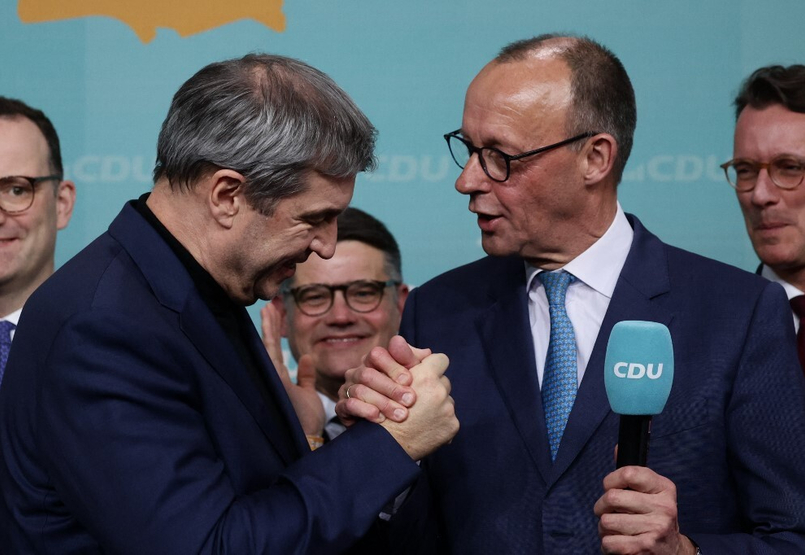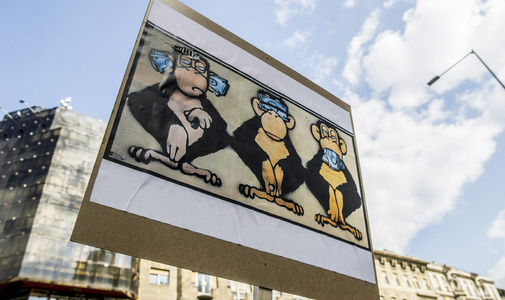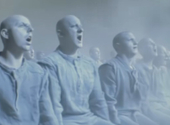This despite the fact that the government had pre-empted them all by moving a law in parliament on the status of Hungarians from neighbouring countries. (The Free Democrats abstained, saying there was no need for token constitutional change). Fidesz claims the government is just making excuses: Viktor Orbán, assuming the role of parliamentary speaker, bade MPs rise for a minute's silence. (This reminded me and others of the minute's silence customarily accorded a great figure after his or her death).
The leaders of the World Alliance of Hungarians took a ceremonial oath before the Holy Crown, seemingly committing themselves to continued pursuit of political ravings and to a re-run of the referendum - so that everything can go wrong for everyone once again. The icing on the cake is that the Hungarian Democratic Forum declared that day of greatest divisiveness to be the Day of National Unity.
Let's be clear. The Hungarian left will never support dual citizenship for Hungarians in neighbouring countries, since, whatever restrictions were put in place, it would become very easy to gain voting rights. It is well known that the national-civic (right) wing is far more popular with Hungarians abroad than the socialist-liberal wing. An election can be decided by just a few tens of thousands of voters. In the longer run, if the number of voters from neighbouring countries ran into the hundreds of thousands (easily arranged by having Fidesz supporters provide lodgings for the foreign visitors), Fidesz could attain a two thirds parliamentary majority.
The right made a great play of supporting dual citizenship, but, as László Kövér recently 'let slip', they know that the issue will not win them any new votes at home. It will not bring over any certain left-wing voters, and right-wing voters are likely to see through the ploy as well. As the referendum showed, floating voters are not particularly interested. The certain right-wing voters are starting to get fed up with the issue, too. All they hear is that the millions of forints sent over there are being wasted, lining people's pockets - and then they just whinge that they have not been given enough. They do not wish to take orders from Vojvodinian, Transylvanian, Lower Carpathian or Slovak Hungarians. They were happy to give an inch, but a mile is going too far.
Even the hard core is hard to captivate with hints about dual citizenship. There may be much fuss, but in the end shouting Trianon! the 15 million! No No Never! is less tempting than going home to relax with a beer in front of the television. After all, who wants to see Serbs, Romanians and Ukrainians arriving alongside our compatriots?
So, as the elections approach, Fidesz will ease up on the dual citizenship issue, and the Socialists will attempt to put some clarity into their confused nationalities policy. The first fruits of this can be seen in the special Hungarian identity document, the national visa, the Homeland Fund, as well as the latest proposal to enshrine a new definition of the nation in the constitution. Meanwhile, dual citizenship will become a distant memory, to be mentioned in the same breath as Hungary's attempt to get out of World War II.
But it might happen that we, those Hungarians from neighbouring countries who do not live off announcing our Hungarianness before microphones and in proclamations, will do rather well out of this symbolic constitutional amendment. At least there might be a place where we will survive.
Károly D Balla is a Lower Carpathian writer.


















